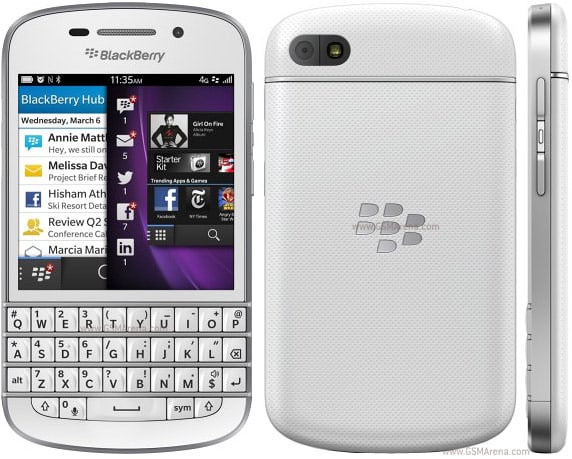

We’re barely through the hype around BlackBerry’s “comeback” platform, with the touch-screen Z10 having been released in February and the Q10 following more recently, but we’re now hearing about a new BlackBerry device.
The A10, a smartphone that is meant to occupy the top of the BlackBerry food chain, is expected to launch over Christmas. The A10 will run the Blackberry 10 OS, but will have a better fit and finish.
“While it will likely get an updated version of the BlackBerry 10 operating system, most of its improvements may come in the form of better specifications and higher-quality design and build,” says CNET’s Roger Cheng. “The Q10, for example, shows a step up in design over the more generic-looking Z10.”
The A10, notes Cheng, is enough of an improvement that Sprint Nextel, which passed on the Z10, will carry it.
In the world of consumer electronics product cycles, the gap between BlackBerry 7 and BlackBerry 10 was almost laughingly long, and it almost sunk the company. For years, from the release of the iPhone in 2007 until earlier this year, BlackBerry die-hards had to carry around devices that seemed like relics, while the iPhone had no less than five iterations of improvements.
The first iPhone was released on June 29th, 2007, followed by the iPhone 3G on June 9th, 2008, the iPhone 3Gs on June 19th, 2009, the wildly popular iPhone 4 on June 24th, 2010, iPhone iPhone 4S October 14th, 2011, and the iPhone 5 on September 21st, 2012.
Of course, the release of the iPhone 5 was the first iPhone that began to reveal cracks in Apple’s armour. The device sold well, but not with the frenzy of the iPhone 4, and many felt it wasn’t much of an improvement over the previous model.
“Nice but not life-changing change,” said influential New York Times columnist David Pogue of the iPhone 5’s retina display, a comment that unintentionally summed up the media’s reception to the device as a whole.
The fact that even Apple, with arguable as much momentum as any consumer electronics in history has had, can underwhelm, begs the question: how often is too often? In the lightspeed world of smartphones, how much is too much?
Should BlackBerry trump the competition by simply tightening their product cycle to nine months, besting Apple’s once-a-year approach? BlackBerry users now have devices that match or best current iPhones in their hands, will the upgrade itch hit them when they see something new on the iPhone or from Samsung, which is turning heads withe specs of its Galaxy S4?
Apple offers two lessons to BlackBerry, and the company should heed them both. First, yes, more frequent release dates are an absolute necessity in today’s smartphone market, a space that seems to live in dog years. Second: be careful; tighter product cycles mean a greater chance for products that aren’t quite ready. Apple can survive a momentous gaffe like it had with Apple Maps. BlackBerry? Maybe not.
Leave a Reply
You must be logged in to post a comment.






 Share
Share Tweet
Tweet Share
Share




Comment